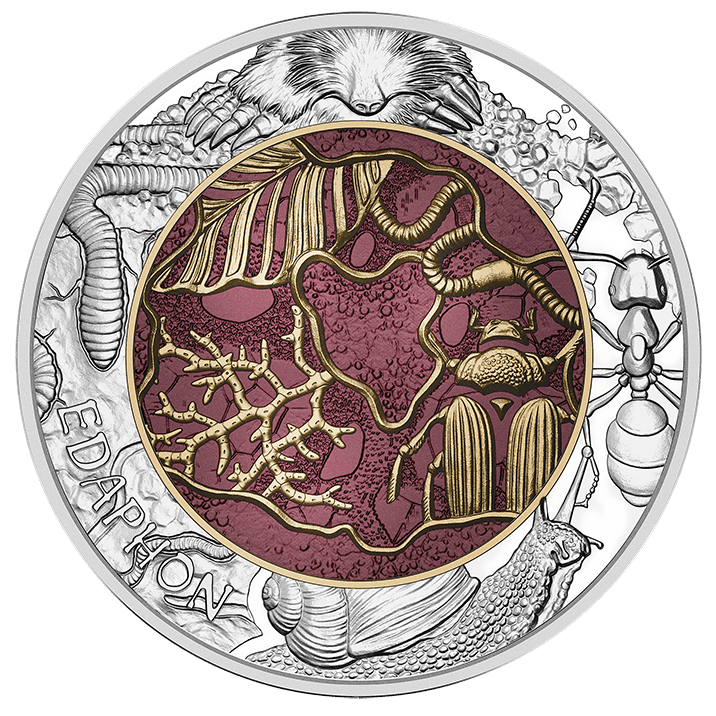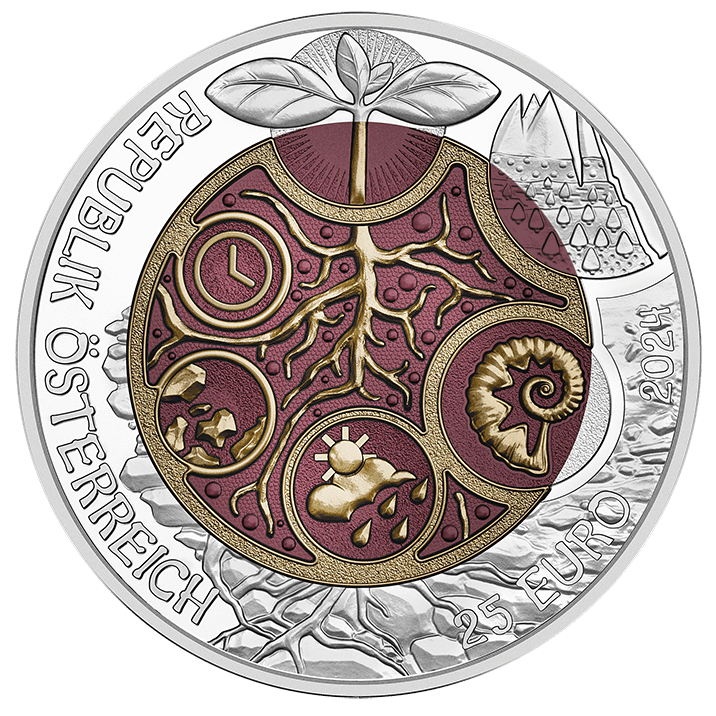20 May 2024
|
A new silver two-tone niobium €25 denomination coin released by the Austrian Mint illustrates the world beneath our feet but one that we’re barely aware of, the edaphon, a collective term for all living organisms found in soil.
The obverse of the coin shows the 5 factors that contribute to the development of soil – time, mineral material, climate, soil organism and the relief of the landscape (which is shown in the outer silver ring). In the centre of the coin shows the roots of a plant, its leaves protruding out into the silver ring of the coin.
The coins reverse shows a mole, earthworm, snail and an ant on the outer ring with the nobium core showing a leaf and 3 other important organisms – a fungal mycelium, a beetle and an earthworm.

Above: The reverse of the coin shows a mole, snail ant and worm on the outer ring, whilst the nobium core shows a leaf and 3 other important organisms
The coin, designed by Kathrin Kunter, Rebecca Wilding and Herbert Wahner is available from the Austrian Mint for €82.20 and each one comes with a numbered certificate of authenticity and protective slipcase.
What is the Edaphon and how does it work?
The Edaphon is the collective term for all living organisms that are present in soil. Working unconsciously together, bacteria, fungi, plants and animals are of vital importance as they decompose withered plants and dead trees which create fertile humus. These structures however, can all break down quickly when farmed.

Above: The observe of the coin shows the 5 factors that contribute to the soil on the outer ring, the core shows the root of a plant that protrudes onto the outer ring.
Although humans have been cultivating soil for thousands of years, in modern times industrialisation has had destructive consequences. Pollution, artificial fertilisers and soil compaction all reduce or even prevent the productivity of the Edaphon. When soil is sealed, its useful functions, such as water storage and the filtering of pollutants are lost. In Austria today, around 11.5 new hectares of natural soil are sealed every day, roughly half of which gets built on.
Climate change is another threat to the Edaphon. As it gets warmer, there is a risk that the humus content will decrease which will lead to the soil drying out. If particularly heavy rainfall occurs, then the soil is no longer able to absorb large quantities of water, which increases the likelihood of erosion and makes soil a scarce commodity.







